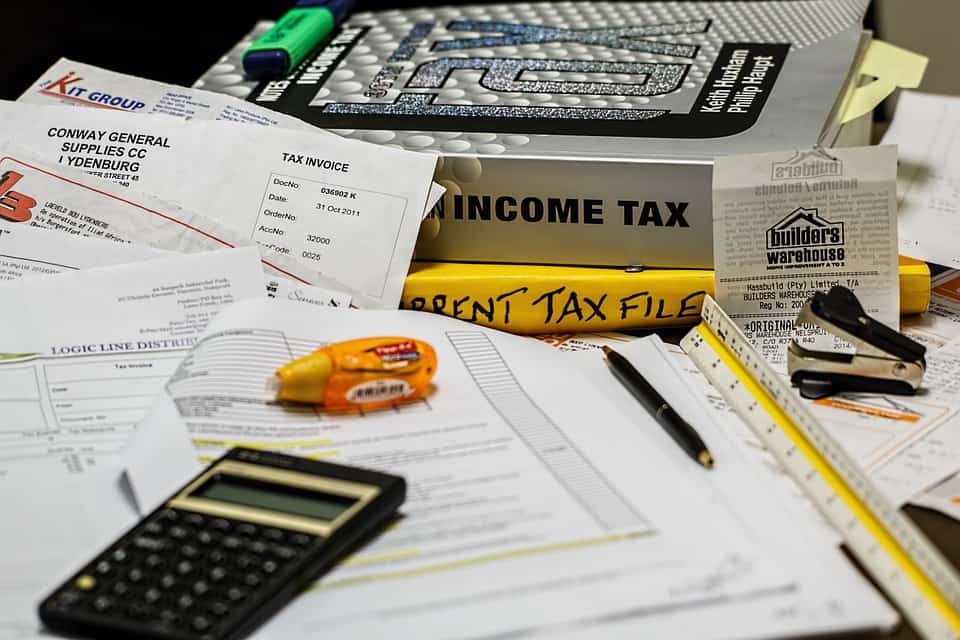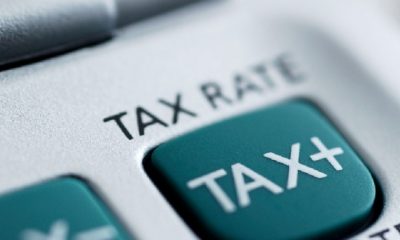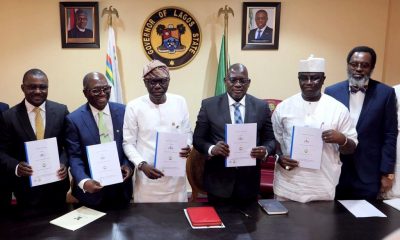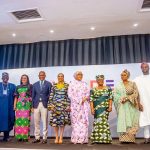Economy
Nigeria’s Tax to GDP Ratio Rises to 8%
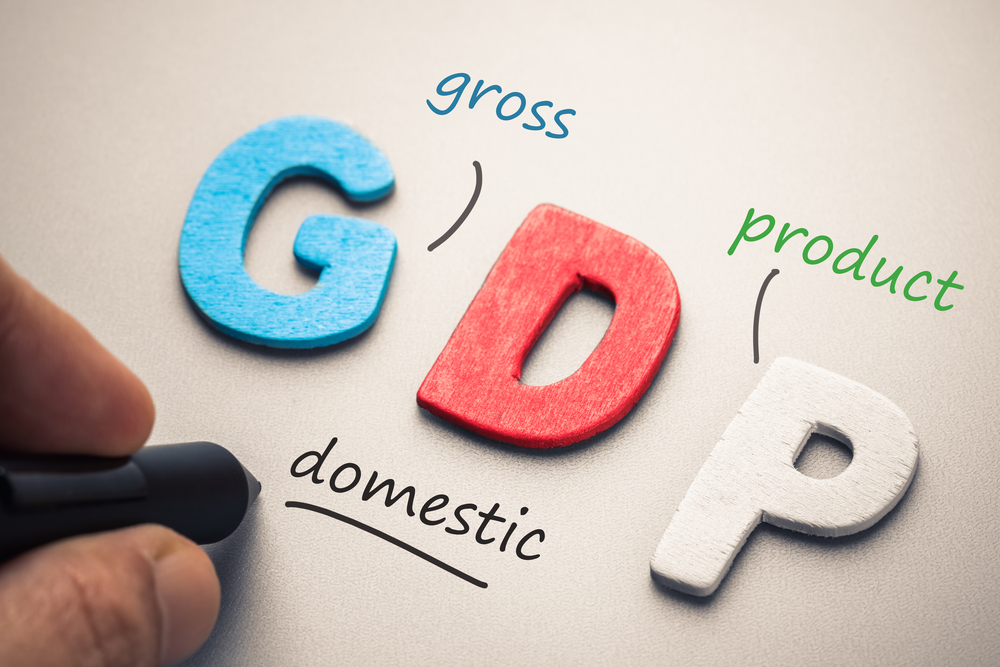
By Dipo Olowookere
Minister of Finance Budget and National Planning, Mrs Zainab Ahmed, has disclosed that the tax to Gross Domestic Product (GDP) of Nigeria is around 7 to 8 percent, which the Accountant said was too low for the country.
She made this disclosure recently in a television interview monitored in Abuja, where she highlighted how she plans to improve the economy of the country by formulating growth-driven policies.
During the interview, the Minister said the nation’s debt portfolio was not high as feared by some Nigerians, stressing that the problem confronting the economy was basically low revenue generation, not high debt profile.
According to her, efforts would be increased towards boosting non-oil revenue in order to bridge the gap and keep the debt to GDP ratio at a manageable level.
“We have to become more efficient in our revenue collection as well as enforcement. Tax to GDP is still 7 or 8 percent to GDP which is too low. Our ERGP target is 15 percent,” she said.
Mrs Ahmed declared that “we have to increase taxes and we have reduced our dependence on oil revenue. We have to increase our non-oil revenue.”
“We have to continue to emphasise our increase in non-oil revenue. Even as we try to maximize what we can’t from the oil revenue,” she added.
Explaining why the ministries of Finance and Budget and National Planning were merged by President Muhammadu Buhari, she said it was purely to ensure better coordination.
“There was the challenge of the implementation of the budget and there was this gap as to what was seen as a priority as seen by the Ministry of Finance and what was seen as the priority as seen by the Ministry of Budget and National Planning.
“Of course, the Ministry of Finance is the treasury so it always had its way because it was the one that was disbursing the funds.
“It created a significant strain and the President decided to bring back the Budget Office to the Ministry of Finance and brought the Planning to the Ministry so that we can maintain the positive trend of linking budget with plans,” the Minister said on the programme.
While admitting that her current mandate “is a very wide one,” she explained that she was already working out how things will work between the planning budget and finance.
“My role is to coordinate all these and make sure that, as much as possible, there are no delays in implementation.”
While commenting on the foreign exchange market in Nigeria, Mrs Ahmed said “there is still a gap and that gap is what we have to bridge and narrow as much as possible from 305 to 360.”
“That is one of our targets,” she stated while disclosing “we have been having a cordial working relationship with the monetary authorities but we have to do more.”
“We did a quick assessment on the ERGP’s impact on households. We have agreed that the priority will have to be agriculture and food security, power, petroleum, as well as, oil and gas, manufacturing, as well as, small and medium enterprises; and the alignment of the fiscal and monetary policies.
“Of course, security and fight against corruption and we added housing and financing of SMEs,” she said.
Mrs Ahmed also said that her team would work more closely with the monetary authorities for better coordination of the economy.
“As a result of the gaps, the monetary authorities are developing or implementing policies that ideally should have been done by the fiscal authorities. So, we have to bridge that gap.
“And maybe because there is not enough impetus from the fiscal side, the monetary authorities appear in some cases to be running faster than the fiscal.
“For me, we have been able to establish an excellent relationship with the CBN and working together, we have to determine things that have to do with tariffs, imports and exports,” she added.
Economy
No Discrepancies in Harmonised, Gazetted Tax Laws—Oyedele

By Adedapo Adesanya
The Chairman of the Presidential Fiscal Policy and Tax Reforms Committee, Mr Taiwo Oyedele, has said there are no discrepancies in the tax laws passed by the National Assembly and the gazetted versions made available to the public.
Last week, a member of the House of Representatives, Mr Abdussamad Dasuki, raised worries about the differences between its version and that gazetted by the presidency.
However, speaking on Channels Television’s Morning Brief on Monday, Mr Oyedele claimed what has been circulating in the media was fake.
“Before you can say there is a difference between what was gazetted and what was passed, we have what has not been gazetted. We don’t have what was passed,” he said.
“The official harmonised bills certified by the clerk, which the National Assembly sent to the President, we don’t have a copy to compare. Only the lawmakers can say authoritatively what we sent.
“It should be the House of Representatives or Senate version. It should be the harmonised version certified by the clerk. Even me, I cannot say that I have it. I only have what was presented to Mr President to sign.”
Mr Oyedele stated that he reached out to the House of Representatives Committee regarding a particular Section 41 (8), which states, “You have to pay a deposit of 20 per cent.”
He noted that the response given by the committee was that its members had not met on the issue.
“I know that particular provision is not in the final gazette, but it was in the draft gazette. Some people decided that they should write the report of the committee before the committee had met, and it had circulated everywhere.
“What is out there in the media did not come from the committee set up by the House of Representatives. I think we should allow them do the investigation,” Mr Oyedele added.
In June, President Bola Tinubu signed the four tax reform bills into law, marking what the government has described as the most significant overhaul of the country’s tax system in decades.
The tax reform laws, which faced stiff opposition from federal lawmakers from the northern part of the country before their passage, are scheduled to take effect on January 1, 2026.
The laws include the Nigeria Tax Act, the Nigeria Tax Administration Act, the Nigeria Revenue Service (Establishment) Act, and the Joint Revenue Board (Establishment) Act, all operating under a single authority, the Nigeria Revenue Service.
Economy
Aluminium Extrusion Surges 59.35% to Lead NGX Weekly Gainers’ Chart

By Dipo Olowookere
A total of 55 equities appreciated last week on the Nigerian Exchange (NGX) Limited versus the 49 equities recorded a week earlier.
However, 33 stocks closed lower compared with 41 stocks in the previous week, while 55 shares remained unchanged versus 57 shares of the preceding week.
Leading the advancers’ log was Aluminium Extrusion, which gained 59.35 per cent to close at N12.35, Mecure Industries rose by 44.93 per cent to N55.00, First Holdco appreciated by 42.93 per cent to N44.95, Guinness Nigeria improved by 33.01 per cent to N289.70, and NPF Microfinance Bank grew by 20.65 per cent to N3.74.
On the flip side, Living Trust Mortgage Bank lost 11.38 per cent to settle at N3.35, Japaul declined by 10.53 per cent to N2.38, International Energy Insurance slipped by 9.92 per cent to N2.27, FTN Cocoa depreciated by 9.80 per cent to N4.42, and Stanbic IBTC went down by 9.33 per cent to N95.20.
The buying interest in the week raised the All-Share Index (ASI) and the market capitalisation by 1.76 per cent to 152,057.38 points and N96.937 trillion, respectively.
Similarly, all other indices finished higher with the exception of AFR Bank Value, and the energy indices, which fell by 1.38 per cent and 0.17 per cent apiece.
According to trading data, a total 9.849 billion shares worth N305.843 billion in 126,584 deals exchanged hands in the five-day trading week compared with the 4.373 billion shares valued at N97.783 billion traded in 110,736 deals a week earlier.
The financial services industry led the activity chart with 8.295 billion shares valued at N232.223 billion traded in 50,351 deals, contributing 84.22 per cent and 75.93 per cent to the total trading volume and value, respectively.
The healthcare space followed with 517.443 million shares worth N3.472 billion in 2,979 deals, and the consumer goods counter transacted 392.765 million shares worth N12.664 billion in 18,438 deals.
The trio of Ecobank, First Holdco, and Access Holdings accounted for 6.424 billion shares worth N204.629 billion in 11,362 deals, contributing 65.23 per cent and 66.91 per cent to the total trading volume and value, respectively.
Economy
NEPC to Disburse $50m Digital Women Empowerment Fund Q1 2026
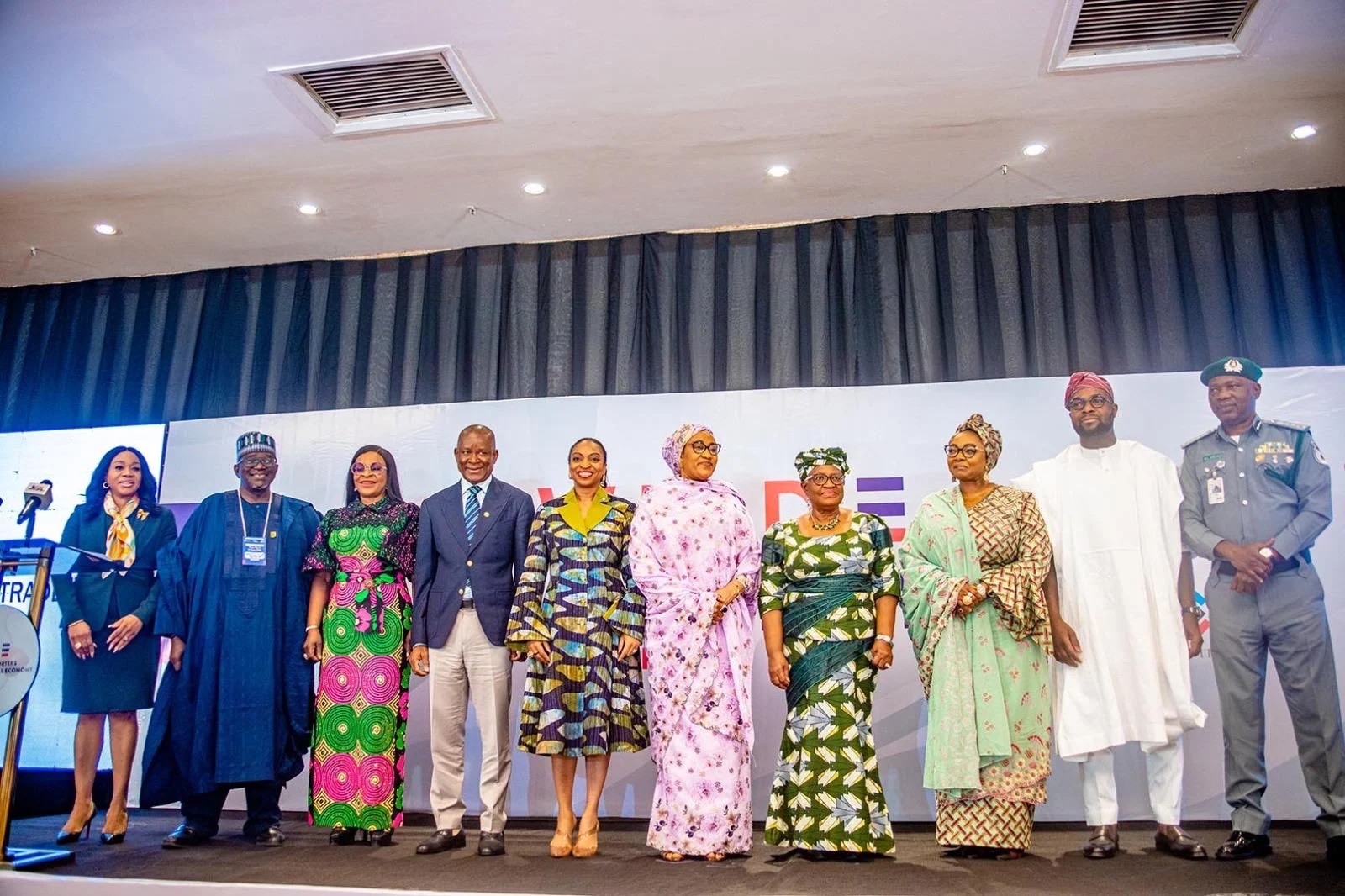
By Adedapo Adesanya
The Nigerian Export Promotion Council (NEPC) has assured beneficiaries of the $50 million Women Exporters in the Digital Economy (WEIDE) Fund to expect the first tranche of grants in the first quarter of 2026, following the completion of ongoing capacity-building and compliance processes.
The assurance was given during a Town Hall Meeting for WEIDE Fund beneficiaries held in Abuja over the weekend. The gathering provided an opportunity to review progress made since the launch of the initiative in August 2025.
The $50 million WEIDE Fund is a global initiative by the WTO and ITC to empower women-led businesses in developing countries, especially Nigeria, by providing training, finance, and market access for digital trade, helping them grow from small enterprises to global players through support like grants and mentorship, as seen in its launch phase benefiting 146 Nigerian women entrepreneurs.
Speaking at the event, the chief executive of NEPC, Mrs Nonye Ayeni, called on beneficiaries to maximize the opportunities provided by the programme, emphasizing the progress made and the milestones achieved since its launch.
Mrs Ayeni said the engagement was meant to review the programme’s achievements, identify areas for improvement, and strengthen support for the beneficiaries.
“So, it’s time for us to get together at the end of the year to see how far we’ve gone, how well we’ve done, and what we need to do to make it better and support them more effectively through the WEIDE Fund,” she said.
Mrs Ayeni highlighted the significant capacity-building activities conducted for the 146 selected women entrepreneurs, noting that top-tier coaches and trainers had been deployed immediately after the official launch by the Director General of the World Trade Organisation (WTO), Mrs Ngozi Okonjo-Iweala.
“These coaches are exceptional. They’ve trained our beneficiaries in financial literacy, bookkeeping, soft skills, leadership, succession planning, and digital tools so they can compete globally,” she said.
-

 Feature/OPED6 years ago
Feature/OPED6 years agoDavos was Different this year
-
Travel/Tourism9 years ago
Lagos Seals Western Lodge Hotel In Ikorodu
-

 Showbiz3 years ago
Showbiz3 years agoEstranged Lover Releases Videos of Empress Njamah Bathing
-

 Banking7 years ago
Banking7 years agoSort Codes of GTBank Branches in Nigeria
-

 Economy3 years ago
Economy3 years agoSubsidy Removal: CNG at N130 Per Litre Cheaper Than Petrol—IPMAN
-

 Banking3 years ago
Banking3 years agoFirst Bank Announces Planned Downtime
-

 Banking3 years ago
Banking3 years agoSort Codes of UBA Branches in Nigeria
-

 Sports3 years ago
Sports3 years agoHighest Paid Nigerian Footballer – How Much Do Nigerian Footballers Earn



